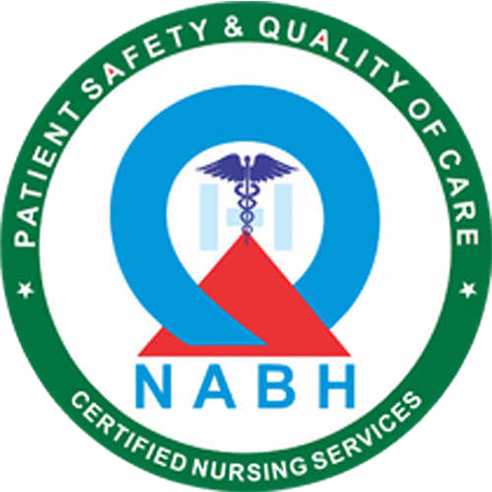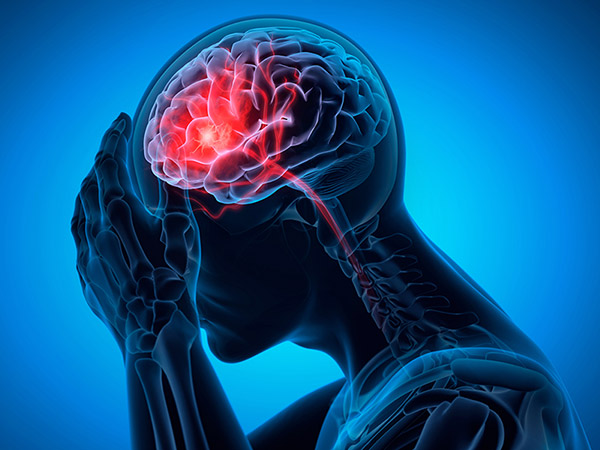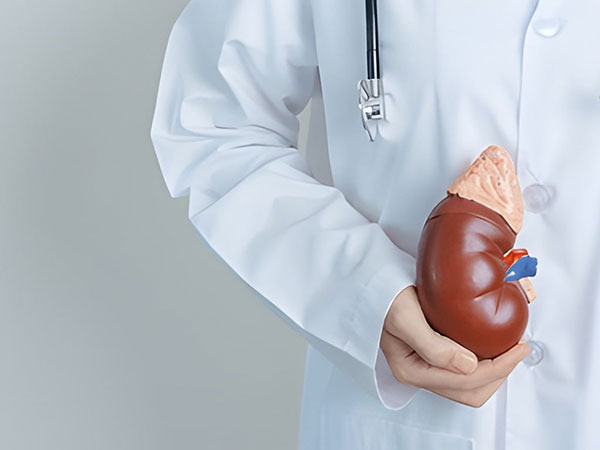Your comprehensive guide to heart health, prevention and expert cardiac care from Mumbai's trusted specialists
In today’s fast-paced world, heart disease has become increasingly common among people of all ages. At Sushrut Hospital, Chembur, Mumbai, our experienced cardiologists understand that heart health isn’t just about treating problems - it’s about preventing them before they start. Whether you’re concerned about heart attack symptoms, looking for the best cardiologist in Mumbai or seeking preventive care, this guide provides essential information for protecting your heart at every stage of your life.
Remember: Heart health concerns require professional medical evaluation. Our cardiac specialists at Sushrut Hospital are here to provide expert diagnosis, treatment and ongoing care for all cardiovascular conditions.
Why Choose Sushrut Hospital for Your Heart Health?
As one of Mumbai’s trusted multispecialty hospitals, Sushrut Hospital in Chembur has built a reputation for comprehensive cardiac care. Our team of experienced cardiologists combines advanced diagnostic capabilities with personalised treatment approaches, making us a preferred choice for patients seeking quality heart care in Mumbai.
Our cardiac care services include:
- Comprehensive heart health checkups and diagnostic testing
- Expert treatment for blocked arteries and cardiovascular disease
- Emergency cardiac care and trauma centre facilities
- Preventive cardiology and lifestyle counseling
- 24/7 cardiac emergency services
Understanding Heart Attack vs Cardiac Arrest: Critical Differences
Many people use these terms interchangeably, but understanding the difference between cardiac arrest and heart attack can be lifesaving. A heart attack is a blockage of the blood vessels that supply oxygen to the heart muscle, while a cardiac arrest is when the heart stops beating entirely.
Heart Attack: When Blood Flow is Blocked
A blockage of blood flow to the heart can damage or destroy heart muscles. During a heart attack, the person usually remains conscious and can communicate, though they experience significant discomfort.
Common heart attack symptoms include:
- Chest discomfort that lasts more than a few minutes, feeling like uncomfortable pressure, squeezing, fullness or pain
- Discomfort in other areas, including pain in one or both arms, the back, neck, jaw or stomach
- Shortness of breath with or without chest discomfort
- Breaking out in a cold sweat, nausea or lightheadedness
Cardiac Arrest: When the Heart Stops
Unlike a heart attack, where the heart may continue to beat and only the blood supply to the heart is compromised, sudden cardiac arrest causes the heart to stop beating entirely. This is a medical emergency requiring immediate CPR and defibrillation.
Cardiac arrest symptoms:
- Sudden loss of consciousness
- No pulse or breathing
- Immediate collapse without warning
If you suspect someone is experiencing any of these conditions, call our cardiac emergency team at Sushrut Hospital, Chembur immediately.
Heart Attack Prevention: Your Action Plan for Life
The good news is that most heart attacks are preventable. Young adults who follow a checklist for good heart health are less likely to show early signs of clogged arteries than those who don’t—and these principles apply at every age.
How to Prevent a Heart Attack: Essential Strategies
The American Heart Association offers lifestyle changes to prevent heart attacks, including quitting smoking, good nutrition, reducing cholesterol, lowering blood pressure, being physically active, losing weight, managing diabetes, reducing stress and limiting alcohol.
Your heart protection plan:
- Quit smoking completely: Single most important step for heart health
- Exercise regularly: Aim to get at least 150 minutes of physical activity each week, including both resistance training and aerobic exercise
- Maintain a healthy weight: Reduces strain on your heart
- Manage stress effectively: Chronic stress damages cardiovascular health
- Control blood pressure and cholesterol: Regular monitoring is essential
Hypertrophic Cardiomyopathy (HCM): A Silent Threat in the Young
One often-overlooked heart condition, particularly in India, is Hypertrophic Cardiomyopathy (HCM) — a genetic-linked heart disease and one of the leading causes of sudden cardiac death in younger individuals. It is an inherited cardiac disorder characterized by abnormal thickening of the heart muscle, most commonly involving the ventricles and interventricular septum, which impairs the heart’s ability to pump blood effectively.
What Is HCM?
HCM causes the walls of the heart muscle (usually the left ventricle) to become abnormally thick, making it harder for the heart to pump blood efficiently.
Why It Matters
Many young individuals with HCM may appear healthy but are at risk of sudden cardiac arrest, especially during intense physical activity.
Early Detection
The good news — HCM can be easily diagnosed with a simple 2-D Echocardiogram (Echo) at Sushrut Hospital’s advanced cardiology unit.
Early screening is especially recommended for those with a family history of heart disease or sudden deaths at a young age.
How to Prevent a Heart Attack at a Young Age
Heart attacks among young people are increasing, making prevention crucial even in your 20s and 30s. Avoiding processed foods and excess sugar, while maintaining a healthy weight, significantly reduces your risk.
Prevention tips for young adults:
- Start healthy habits early: Prevention is easier than treatment
- Regular health screenings: Don’t wait for symptoms to appear
- Avoid processed foods: Focus on heart-healthy diet choices
- Stay physically active: Make exercise a non-negotiable part of your routine
- Don’t ignore family history: Genetic factors matter
Comprehensive Heart Health Tips for Daily Life
Living heart-healthy doesn’t require dramatic lifestyle overhauls. Small, consistent changes can make significant differences in your cardiovascular health over time.
Nutrition for Heart Health
While working with our nutritionists at Sushrut Hospital in Chembur, our patients learn practical dietary strategies that fit their lifestyle while protecting their heart health.
Heart-healthy eating principles:
- Choose whole foods: Fresh fruits, vegetables, whole grains and lean proteins
- Limit sodium intake: Helps control blood pressure naturally
- Include healthy fats: Omega-3 rich foods like fish, nuts and olive oil
- Control portion sizes: Maintaining healthy weight reduces heart strain
- Stay hydrated: Adequate water intake supports circulation
The Importance of Regular Heart Health Checkups
Regular heart health tests and checkups allow our cardiologists to identify risk factors before they become serious problems. Early detection and intervention can prevent many cardiovascular diseases from developing.
Essential heart health tests include:
- Blood pressure monitoring: Checks for hypertension
- Cholesterol screening: Identifies arterial blockage risks
- Blood glucose testing: Diabetes significantly increases heart disease risk
- Electrocardiogram (ECG): Evaluates heart rhythm and function
- Stress testing: Assesses heart performance under exertion
Recognizing Symptoms of Cardiovascular Disease
Understanding cardiovascular disease symptoms helps you know when to seek immediate medical attention. Women and men may present with different symptoms. For men, chest pain is the most common symptom. Women often experience other symptoms that don’t always appear heart attack-related, such as fatigue, back or jaw pain and nausea.
Warning signs that require immediate medical attention:
- Persistent chest pain or pressure
- Shortness of breath during normal activities
- Unusual fatigue or weakness
- Irregular heartbeat or palpitations
- Dizziness or fainting spells
- Swelling in legs, ankles, or feet
Treatment for Blocked Arteries: Advanced Cardiac Care
When prevention isn’t enough, our experienced cardiologists at Sushrut Hospital provide comprehensive treatment options for blocked arteries and other cardiovascular conditions. Treatment approaches depend on the severity and location of the blockages.
Our treatment options include:
- Medication management: Blood thinners, cholesterol medications, blood pressure control
- Interventional procedures: Angioplasty, stent placement for blocked arteries
- Lifestyle modification programs: Comprehensive cardiac rehabilitation
- Surgical interventions: When necessary, performed by our experienced cardiac surgeons
Managing Heart Health, Stress and Mental Wellness
Heart health isn’t just physical—mental and emotional wellness play crucial roles in cardiovascular health. Our psychiatric specialists in Chembur work alongside our cardiology team to address the psychological aspects of heart disease.
Stress management strategies:
- Regular exercise: Natural stress reducer and mood enhancer
- Adequate sleep: 7-8 hours nightly for optimal heart health
- Mindfulness practices: Meditation, deep breathing exercises
- Social connections: Strong relationships support heart health
- Professional support: Don’t hesitate to seek counseling when needed
Emergency Care: When Every Second Counts
As a trauma centre hospital in Chembur, Sushrut Hospital provides 24/7 emergency cardiac care. Our emergency team is trained to handle all cardiac emergencies, from heart attacks to cardiac arrest, with immediate, life-saving interventions.
Emergency situations requiring immediate care:
- Severe chest pain lasting more than a few minutes
- Signs of heart attack or cardiac arrest
- Sudden severe shortness of breath
- Loss of consciousness with suspected cardiac cause
- Rapid or irregular heartbeat with symptoms
Your Heart Health Journey at Sushrut Hospital
By maintaining a balanced diet, staying active, managing stress and undergoing regular health screenings, you can significantly reduce the likelihood of a heart attack. Remember, prevention is always better than cure—and it’s never too early or too late to start caring for your heart.
Why patients choose us:
- An experienced cardiology team with comprehensive expertise
- State-of-the-art cardiac diagnostic and treatment facilities
- Integrated care approach including nutrition and mental health support
- 24/7 emergency cardiac services and trauma centre capabilities
- Patient-focused care with personalized treatment plans
Contact Sushrut Hospital, Chembur for:
- Routine heart health checkups and screening
- Expert evaluation of cardiovascular symptoms
- Treatment for blocked arteries and heart disease
- Emergency cardiac care and consultation
- Preventive cardiology and lifestyle counseling
Frequently Asked Questions About Heart Health
What’s the difference between heart attack and cardiac arrest?
A heart attack is a blockage of the blood vessels that supply oxygen to the heart muscle. The person may be awake and if left untreated, the heart attack may progress to cardiac arrest. Cardiac arrest is when the heart stops beating entirely. Heart attacks allow time for treatment, while cardiac arrest requires immediate CPR and emergency intervention.
How can I prevent heart attacks at a young age?
Prevention starts with healthy lifestyle choices in your teens and twenties. Focus on regular exercise, avoiding smoking, maintaining a healthy diet low in processed foods, managing stress effectively and getting regular health screenings even when you feel healthy. Young adults who follow a checklist for good heart health are less likely to show early signs of clogged arteries later in life.
What are the most important heart health tests I should have?
Regular heart health checkups should include blood pressure monitoring, cholesterol screening, blood glucose testing and electrocardiograms as recommended by your cardiologist. The frequency depends on your age, risk factors and family history. Our cardiologists at Sushrut Hospital can create a personalized screening schedule based on your individual needs.
When should I see a cardiologist immediately?
Seek immediate cardiac care for severe chest pain lasting more than a few minutes, shortness of breath with chest discomfort, symptoms of a heart attack, loss of consciousness, or rapid irregular heartbeat with symptoms. For urgent concerns, contact our emergency services at Sushrut Hospital, Chembur, available 24/7.






